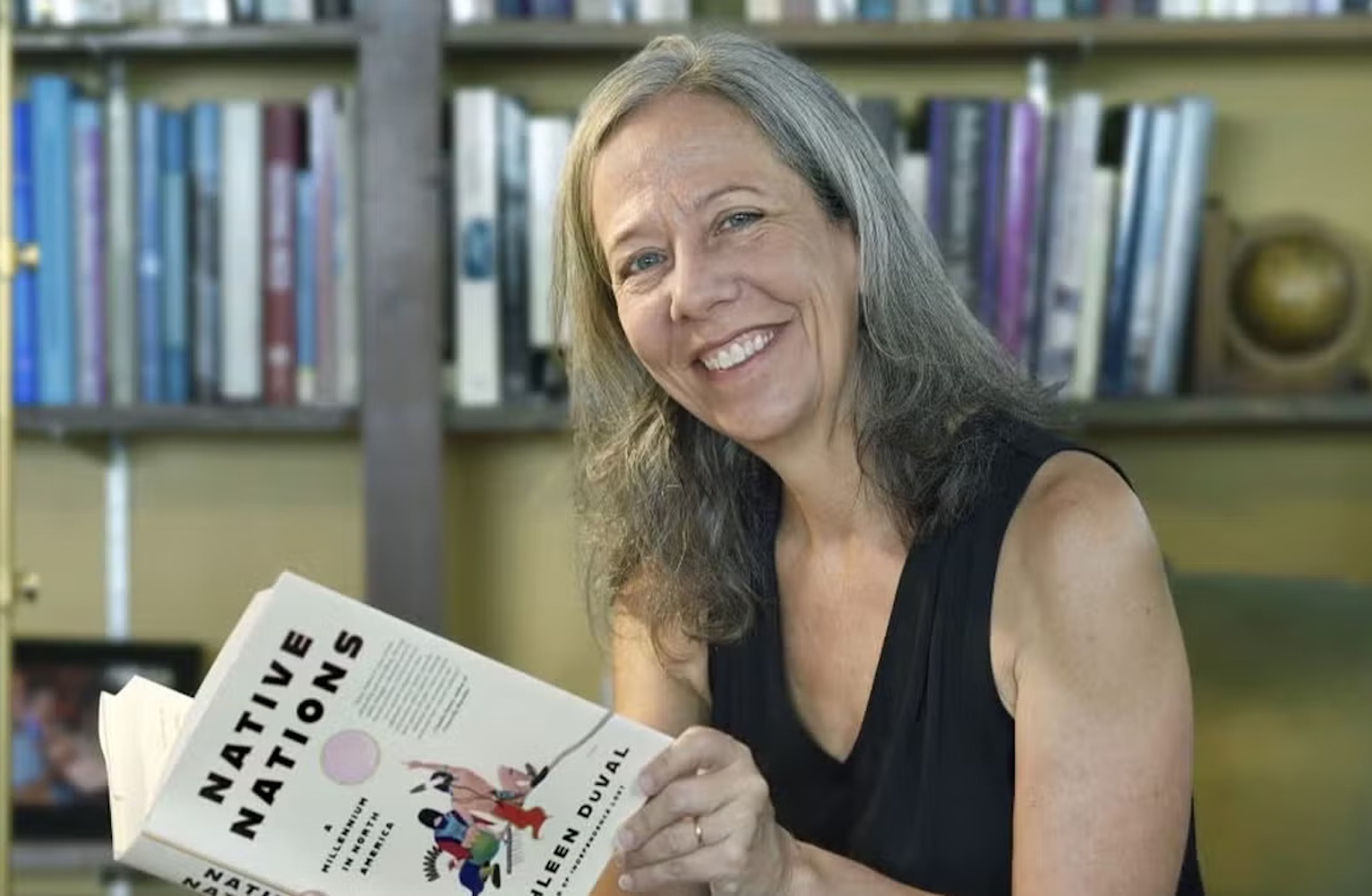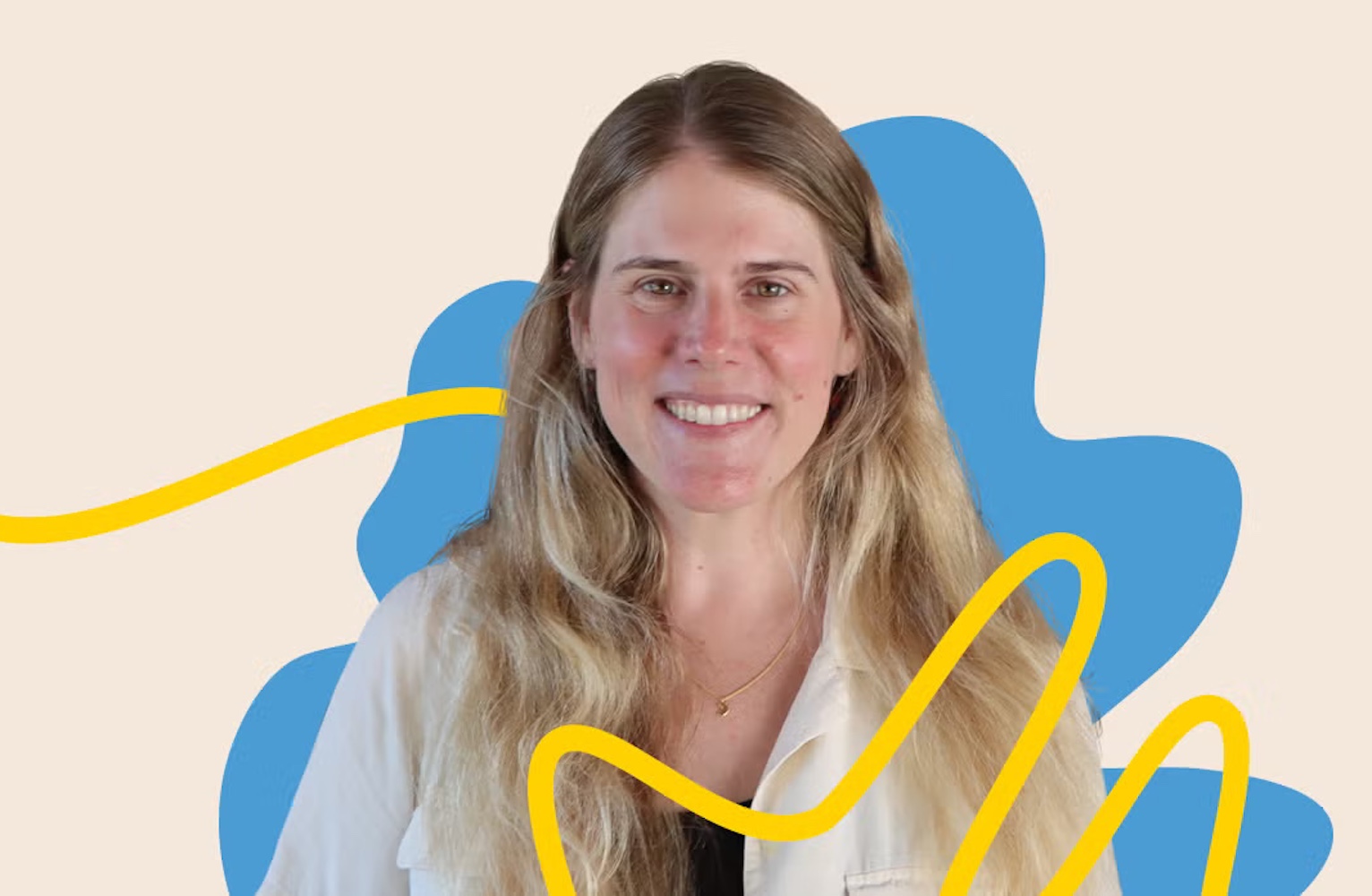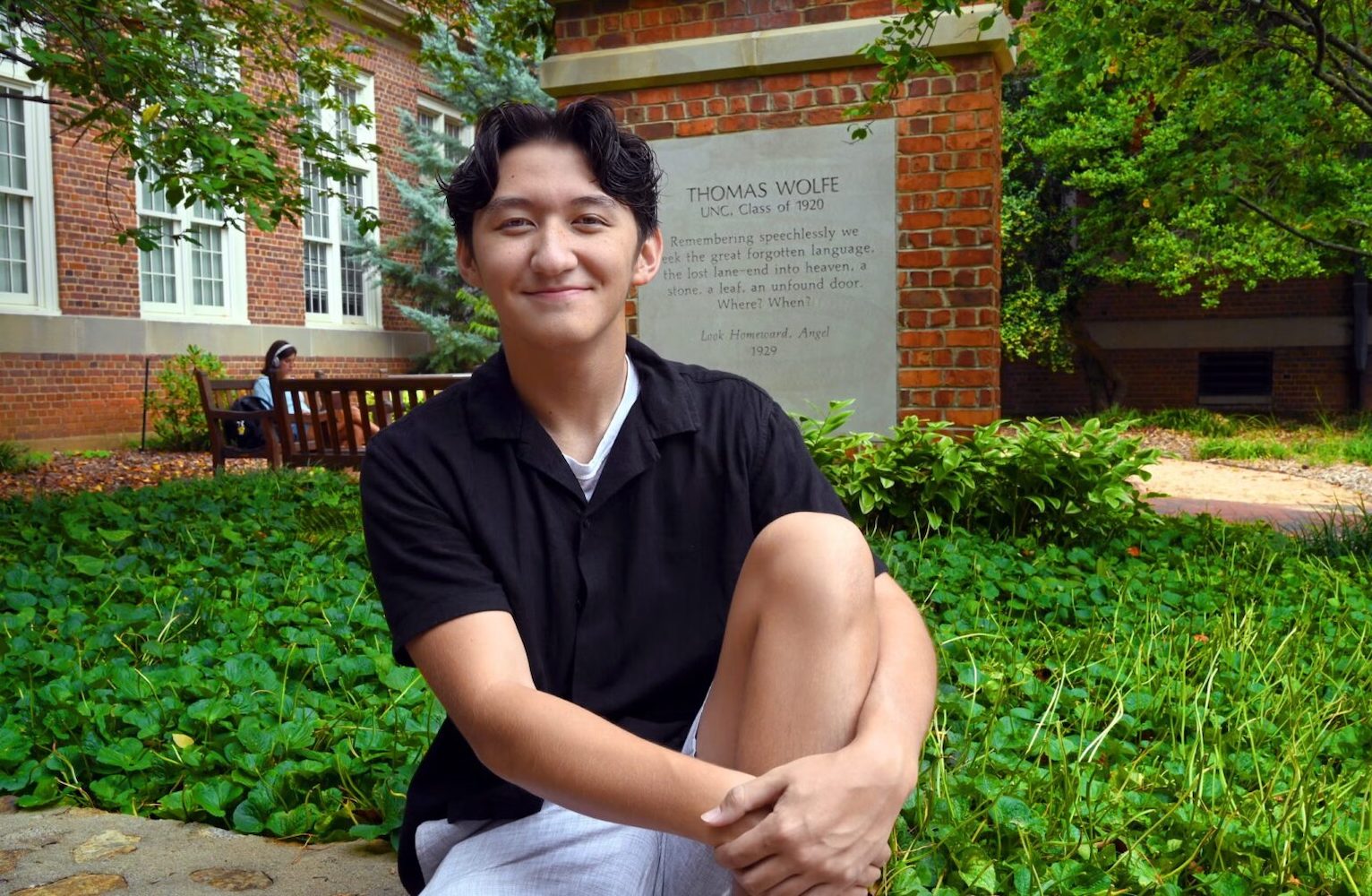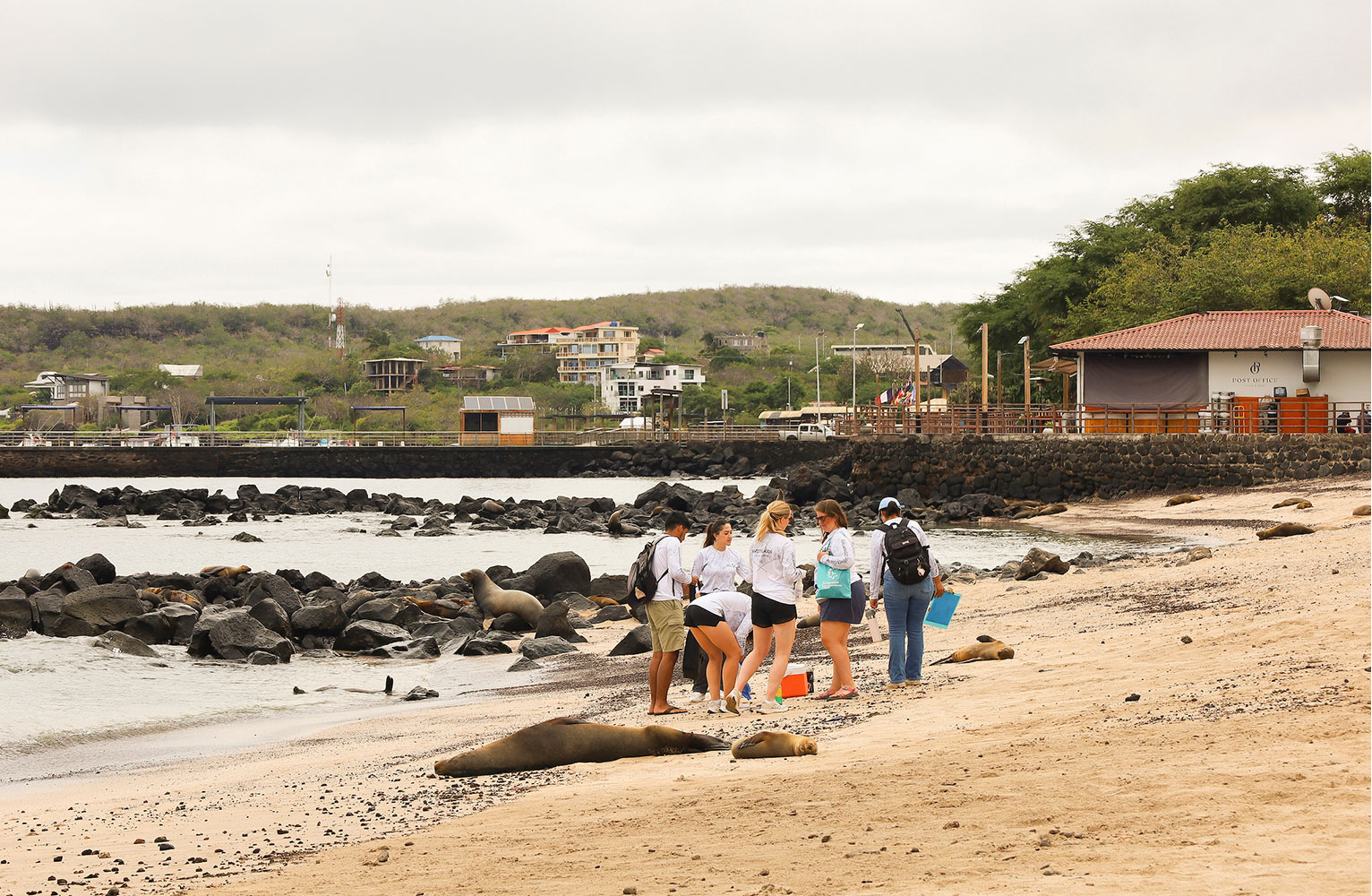
Students and UNC and USFQ faculty test sea water quality in San Cristobal, Galapagos.
Carolina students experience research and life in the Galapagos.
Written by Audrey Smith ’10
Photos by Karina Vivanco
Eight Carolina undergraduate students spent the month of July in the Galapagos Islands — living with host families, participating in cross-disciplinary research at the Galapagos Science Center and experiencing life on the island alongside island residents. These students, along with six students from the Galapagos campus of the Universidad San Francisco de Quito, were the first cohort to participate in the new field experience program funded by a gift from Royal Caribbean Group.
Each week of the four-week program had a different research focus and was led by a faculty researcher from UNC-Chapel Hill or Universidad San Francisco de Quito. Over the course of the program, students:
- learned research basics and ethics;
- participated in community surveying and drone mapping of the islands;
- took samples and did lab work to assess water quality on the islands’ beaches and in host families’ homes; and
- contributed to a citizen science project to provide photo identification and digital tracking of local sea turtles.
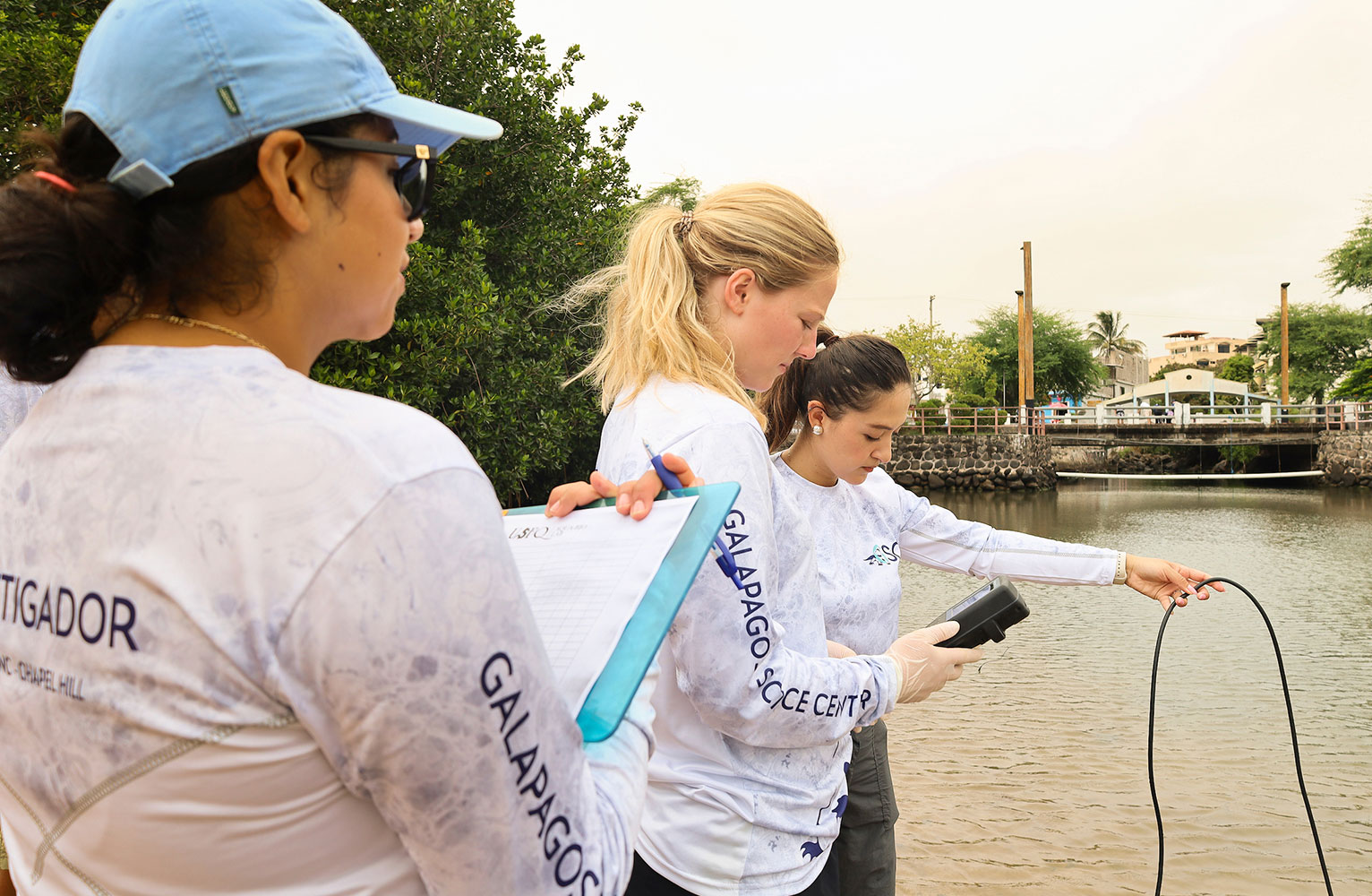
UNC students Briseyda Rios and Mary Morgan work with USFQ researcher Gabriela Morales to measure water chemistry.
Conducting research with real-world applications
Each research project that the students participated in was a part of ongoing work that has real-world applications in the Galapagos Islands.
As students conducted community surveys and drone mapping of the islands, they helped assess the effects of climate change on the region’s farmland and businesses. This data will be helpful in evaluating economic impacts of climate change and identifying community needs, to help those who live and work on the islands earn a living wage.
Similarly, water testing screened the water from local beaches and homes for the presence of bacteria, including E. coli and other contaminants that can pose a significant threat to public health. Tracking sea turtles will provide local scientists with the data necessary to determine if the area’s current marine reserve, or area of the ocean protected from boating and other disruptive activity, is adequate to protect the area’s sea turtles or if the marine reserve needs to be expanded.
“My biggest takeaway was that we need to keep these types of science centers running and continue funding this type of research,” said Janelle Choi ’27, a program participant who is majoring in environmental science. “The research projects we worked on aren’t being done just for the sake of doing research or because it’s fun to study sea turtles. This research, when carried out alongside communities and guided by residents’ needs, can create lasting, positive impacts on people’s daily lives and livelihoods.”
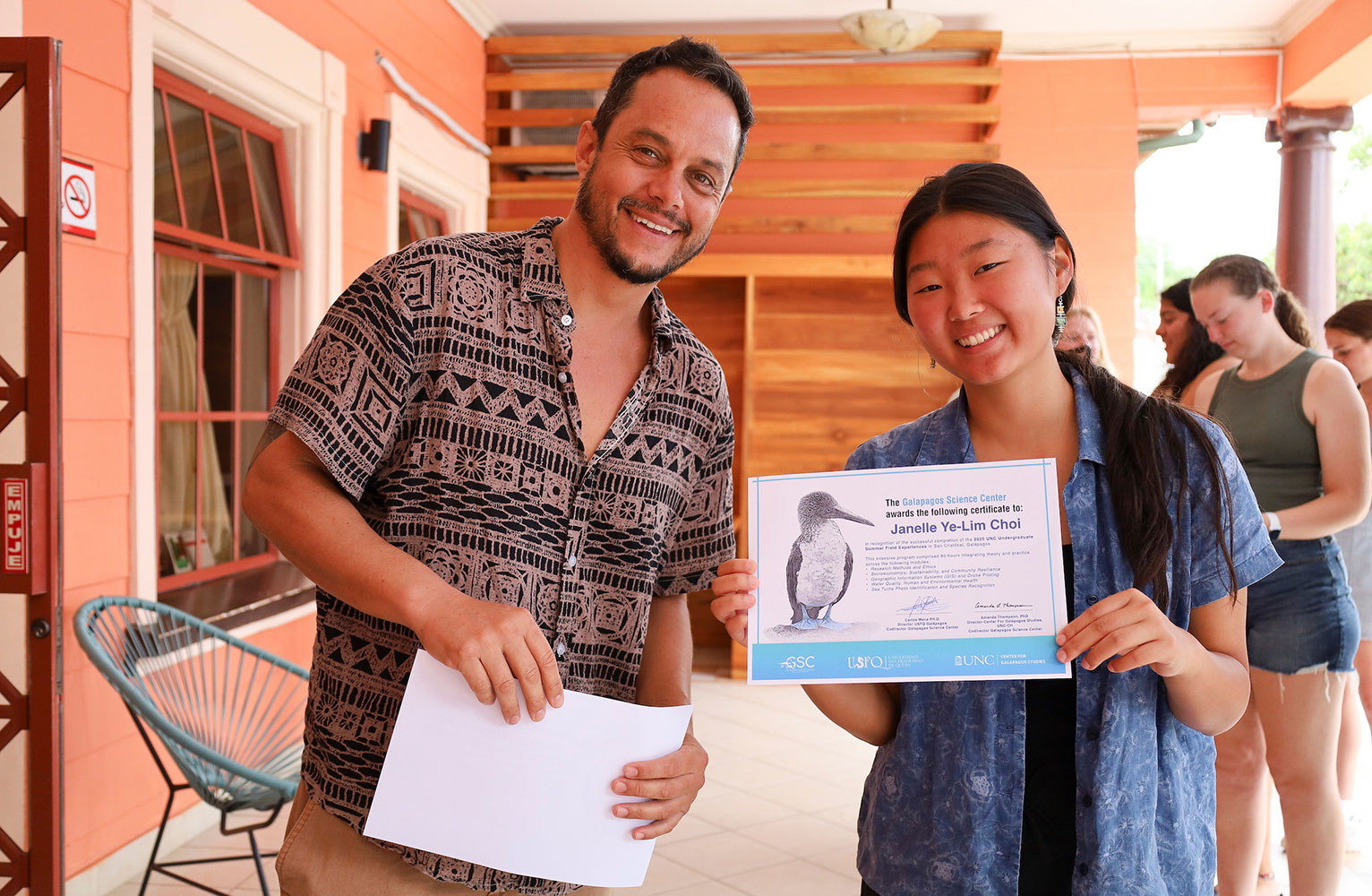
UNC student Janelle Choi receives her participation certificate from USFQ professor Juan Pablo Muñoz.
Learning from locals
The field experience was a deeply cross-cultural experience. Carolina students lived on the island, staying with local residents who served as their host families during the four-week program. Host families shared meals with students, gave them tours of the island that included areas rarely seen by tourists and helped them practice their Spanish-speaking skills.
Carolina students also benefited from learning from Universidad San Francisco de Quito faculty and studying alongside UFSQ students, who are local residents living and studying in the Galapagos Islands full time. The two groups of students became friends, despite language barriers, and spent most of their free time together. USFQ students helped Carolina students navigate the island and better understand its culture and biodiversity.
“Our classmates were so hospitable and so educated on the island, its plants and the ecosystem of how things work together,” said student participant Maya True Wasik ’27. “They would just casually tell us these interesting facts about where they lived. It really inspired me to be more connected with the nature that surrounds me here in North Carolina and to be able to talk about it.”
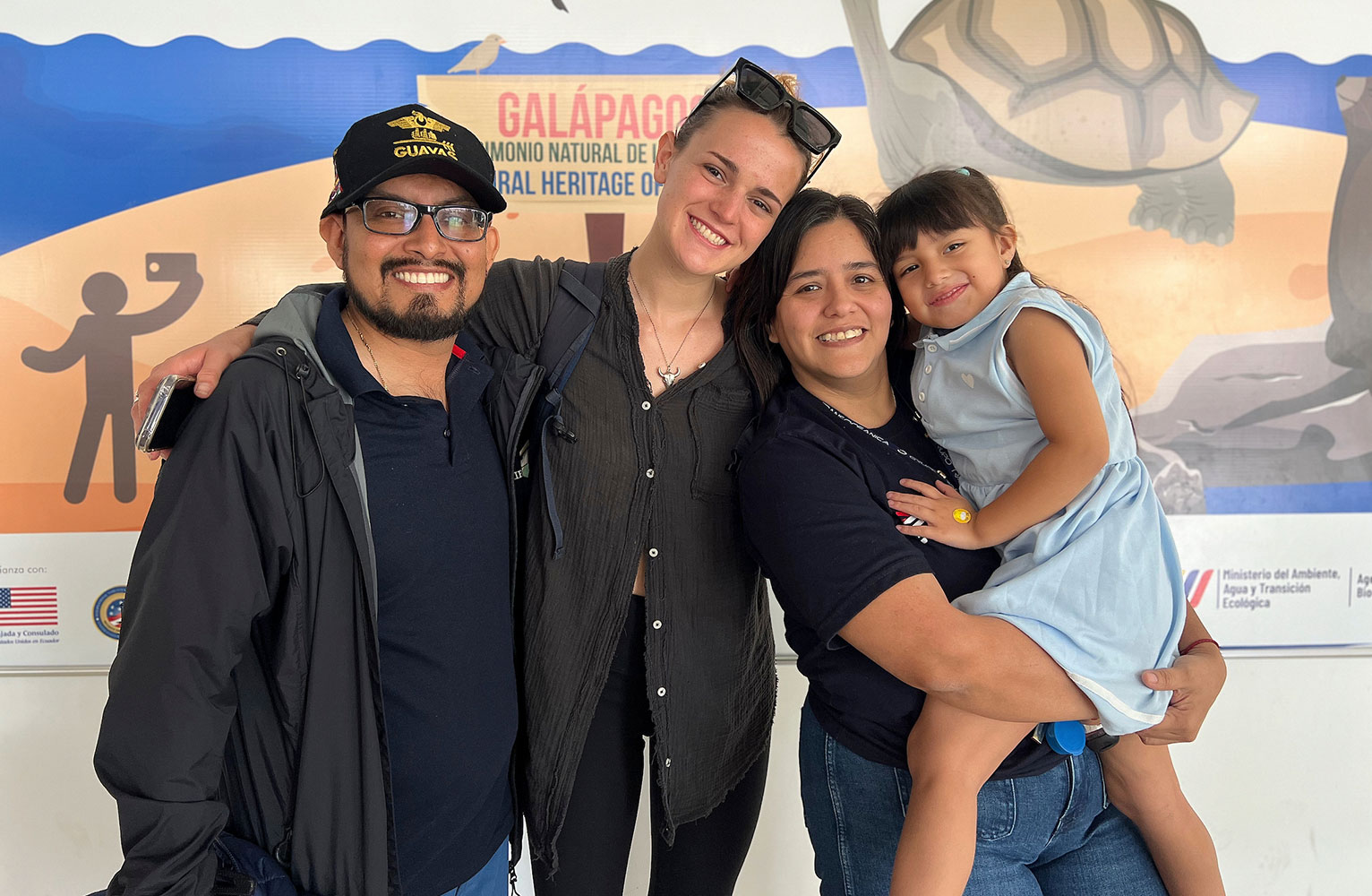
Maya True Wasik poses with her host family.
Mary Morgan ’27 stayed with a host family who had recently started a new business on the island, a mini market designed to serve both tourists and locals.
“My host family asked me to come into their business and give them some advice, from a tourist’s perspective, on store layout and product placement,” said Morgan, who is majoring in health policy and management in the UNC Gillings School of Global Public Health. “My favorite part of the program was staying with my host family. When I arrived, my Spanish wasn’t as strong as many of the other students’ who were already bilingual, so I had a steep learning curve. My host family was incredibly patient and supportive which helped me improve quickly. I’m thankful that I had opportunities to help them behind the scenes too, by being a customer in their new store.”
Growing as a person
Because the participants were so immersed in local life and culture, many students found themselves deeply affected beyond what they experienced in the classroom, lab or field.
“The biggest thing I gained from this experience was seeing that the world is so much bigger than I thought,” said Yaretzi Guerrero ’28, an environmental science and public policy double major. “Being able to participate in so many types of research that are typically not open to undergraduates certainly helped me gain new technical skills and clarified what types of environmental research I’m most interested in pursuing. But, I also grew as a person — in my people skills, in my ability to communicate cross-culturally, in my confidence and in my understanding of what I want my impact to be on the world.”
Wasik, who is a global studies and journalism double major, was both a program participant and served as the photographer and videographer documenting the program for the UNC Center for Galapagos Studies, where she previously served as a student intern.
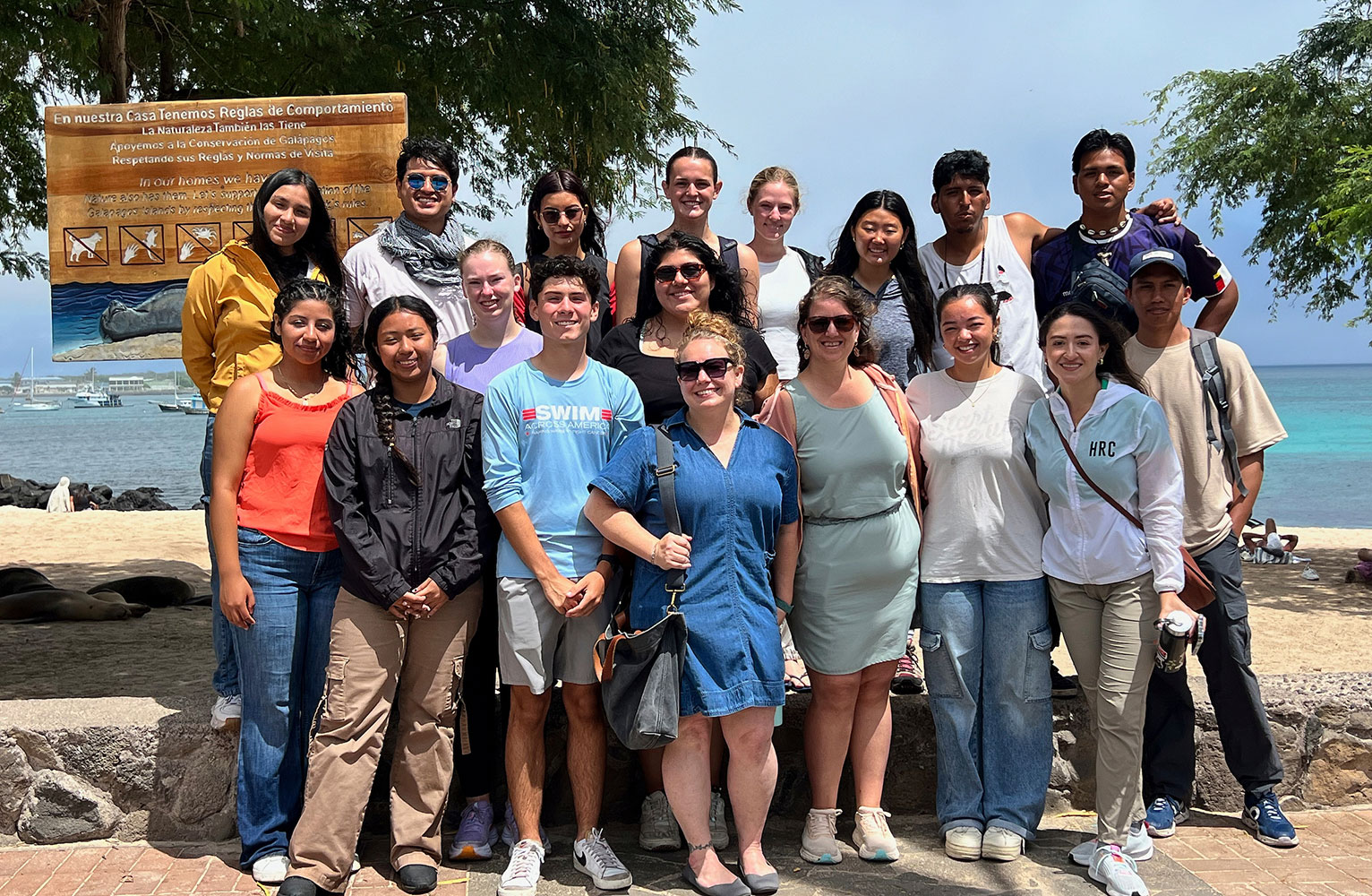
Program participants pose with USFQ and UNC faculty.
“It was the opportunity of a lifetime, being in a space where people are living on an island dedicated to conserving nature and making the planet healthy again,” said Wasik. “My objective being there was to communicate the research being conducted by the Galapagos Science Center in the lab to a wider community to make it more understandable and relatable, and this experience really reinforced my passion for photography and filmmaking.”
After returning from the Galapagos Islands, Wasik is spending the fall semester studying abroad in Hong Kong as a Freeman Asia Scholar, where she’s creating a documentary on the arts and culture of the Hong Kong territory.
“I don’t think I would be able to do this work in Hong Kong if I hadn’t experienced everything that I did on the Galapagos field experience,” said Wasik. “Knowing how to interact with people across cultures, being able to respectfully take photos and videos of people, being a problem solver behind the camera when things don’t go as planned, being able to safely transport equipment and back-up files as I travel internationally and navigate having less access to the internet — these are all really important skills that I learned in the Galapagos.”
The 2024 gift from Royal Caribbean Group provided funding for three years of student field experiences. Students who are interested in applying for the summer 2026 Galapagos field experience can apply at galapagos.unc.edu/undergraduate-summer-field-experiences beginning in early 2026.
Related Stories






